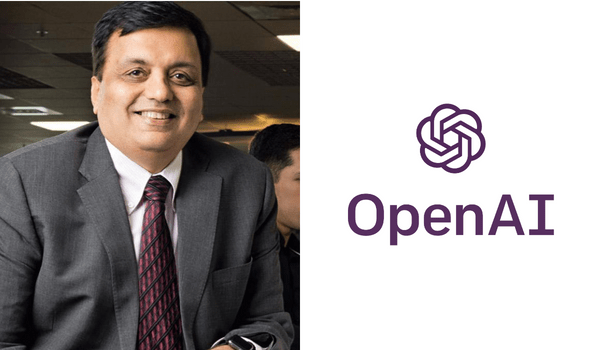The rise of generative AI, exemplified by OpenAI’s ChatGPT, has sparked concerns about job displacement and unemployment. However, Milind Lakkad, CHRO, TCS, one of India’s top IT services companies, believes that generative AI will not replace jobs, but rather act as a coworker. Lakkad explains that generative AI will work alongside humans and that its role will be to complement rather than replace human workers.
Generative AI, also known as creative AI, refers to the application of machine learning models and algorithms to create new media, such as music, literature, and images. ChatGPT is a prime example of the power of generative AI, capable of producing dialogue and question-response output that resembles human speech. However, the increasing use of generative AI has led to concerns about its impact on the job market, particularly in the computer sector.
Lakkad argues that the deployment of generative AI will change the meaning of work, rather than the jobs themselves. Workers in various industries will continue to be necessary, although the deployment of generative AI may reduce the need for workers in tedious and repetitive jobs. Lakkad believes that generative AI will not replace existing business structures but rather promote collaboration. These technologies will increase output, ensure uniformity in work, and reduce the need for governance, all while accelerating delivery and reducing ancillary tasks.
Lakkad suggests that the deployment of generative AI will require changes in training, and TCS is already prepared for future needs. Lakkad anticipates that the impact of generative AI will be better understood within the next two years.
The rise of generative AI has sparked concerns about job displacement and unemployment, but Lakkad believes that it will not replace human workers but rather act as a coworker. Generative AI will require changes in training and will lead to a change in the meaning of work rather than the jobs themselves. The deployment of generative AI will promote collaboration and increase output while reducing the need for governance, accelerating delivery, and reducing ancillary tasks. TCS is already prepared for this future need, and the impact of generative AI will become better understood within the next two years.
Value our content... contribute towards our growth. Even a small contribution a month would be of great help for us.
Since eight years, we have been serving the industry through daily news and stories. Our content is free for all and we plan to keep it that way.
Support HRKatha. Pay Here (All it takes is a minute)




































